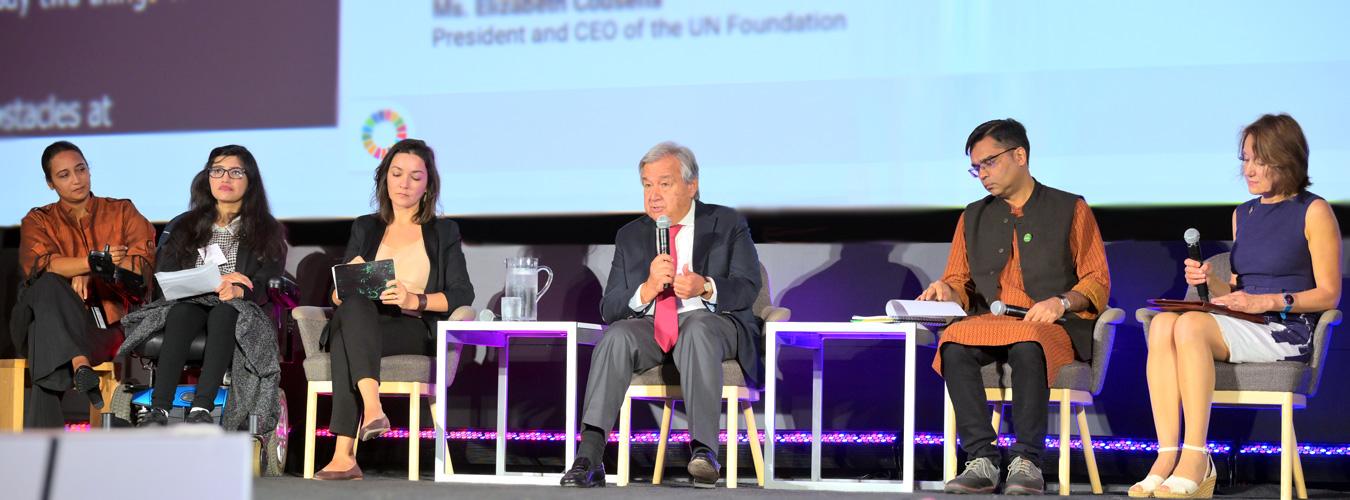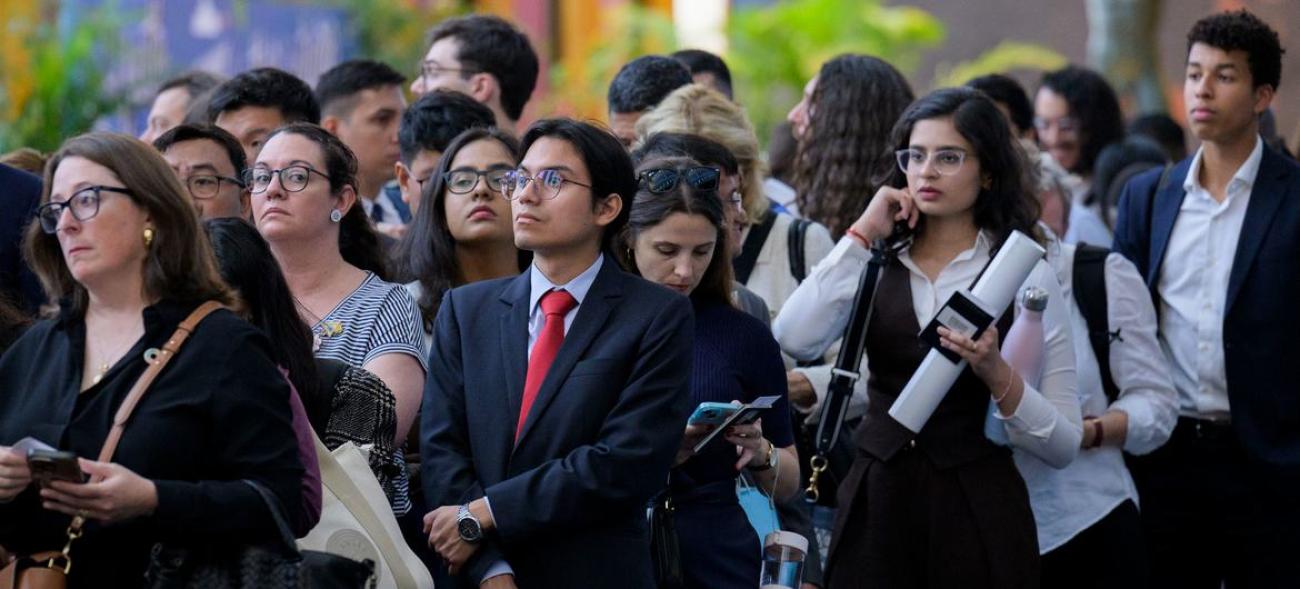Youth voices rang out at the United Nations Headquarters on Friday, setting the stage for the highly anticipated Summit of the Future. With an unprecedented chance for global leaders to tackle today’s complex issues, youth attendees aimed to secure their role in shaping world reform.
As the UN General Assembly Hall filled with young people from across the globe, Felipe Paullier, the inaugural UN Assistant Secretary-General for Youth Affairs, underscored the significance of this event.
“Ten years ago, a day like today would have been unimaginable: a day on the official programme of the United Nations dedicated to youth,” Paullier emphasized.
“A day when this house recognizes that any agenda – whether it’s gender, climate, peace and security, sustainable development or human rights – has the youth agenda as a cross-cutting element of it.”
Young Leaders Prepare for Transformation

In the days ahead, leaders will adopt a Pact for the Future, encompassing crucial areas like sustainable development, global governance, and youth inclusion. The Summit’s outcomes, such as the Global Digital Compact and the Declaration on Future Generations, aim to address long-standing global challenges.
For many, the Summit is also an opportunity to reconsider the international financial framework and reform the UN Security Council, established in an era when numerous nations were still under colonial rule.
Terry Otieno, a social advocate from Kenya, highlighted the youth’s role in driving these conversations. “Young people have been “instrumental in shaping the landscape” he said, affirming their commitment to ensuring global agendas reflect their perspectives.
A Future Shaped Today
Youth activist Areej from Yemen reminded the assembly of the lasting impact today’s decisions will have. “What we do now will shape their world, whether that world is defined by conflict, poverty and fear, or by hope, security and opportunity,” she stated. “We must ask ourselves: are we ready to take action so that every child can flourish?”
Despite their enthusiasm, many young attendees voiced concerns that their contributions are often dismissed as mere “tokenism.” During a live poll, this sentiment resonated with the majority, as they engaged in a dialogue with Secretary-General António Guterres.
Rising Against ‘Tokenism’

Reflecting on the poll’s results, Caleb Brathwaite, President of the Barbados Youth Development Council, shared his skepticism about the potential impact of the Pact for the Future. He urged youth to demand more, pressing for action and the establishment of global branches for the UN Youth Office. “keep our governments’ feet to the fire,” he insisted, ensuring that promises made are kept.
Daphne Frias, a youth activist, highlighted the damaging nature of tokenism, where youth voices are heard but not heeded. “The most sort of insidious thing about tokenism is that our stories get to be shared with others, but they don’t actually inform action going forward,” she said. “Our voices occupy rooms, but then they fall on silent ears.”
As youth leaders prepare for the upcoming Summit, they remain determined to claim their rightful place in shaping the global future. Their message is clear: this generation will not settle for empty promises, but will push for real, lasting change.



